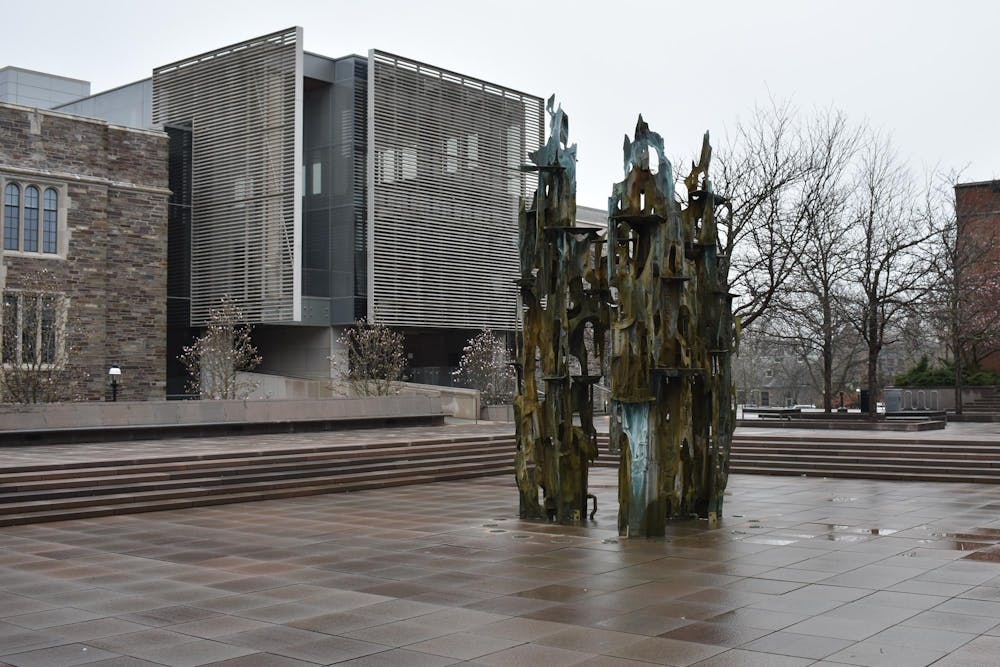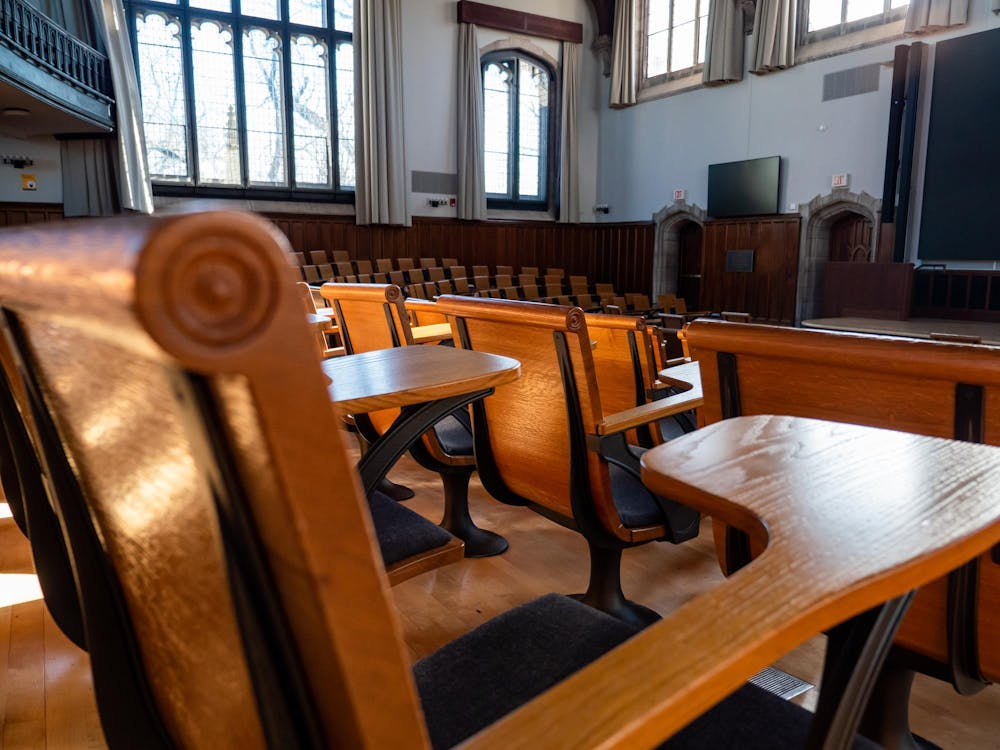If you’re more than a year old, you probably remember when America’s political right was very concerned about free speech on college campuses. Just a few years ago, then-University of Virginia student Emma Camp kick-started this craze when she published a New York Times opinion essay titled “I Came to College Eager to Debate. I Found Self-Censorship Instead.” In it, Camp complained about holding herself to “strict ideological conformity” because campus progressives stifled her controversial opinions in class.
The idea that conservative students are forced to self-censor has dominated right-wing discourse about universities ever since. Princeton professor Robert P. George wrote last year about the topic, arguing that “self-censorship among students, and even faculty members, has become a common feature of campus life.” Recently, outside agitator Christopher Rufo went on The New York Times’ podcast The Daily and said “I actually know quite a few members of the Princeton faculty, some of whom are conservatives … [who] don’t even feel comfortable stating their opinions in public.”
To be honest, though, conservative self-censorship has never been grounded in reality. After all, liberal students do not regularly or systematically threaten to upend the quality of life, arrest, assault, or suspend a conservative student or faculty member for their beliefs.
But now, liberals are being arrested for, it seems, their speech. Four weeks ago, the Trump administration detained Rumeysa Öztürk seemingly because she wrote an op-ed in the name of Palestinian freedom.
This attack on free speech is spreading a climate of fear among liberal students and faculty at Princeton — and, surely, at many schools — who are self-censoring because they fear losing their livelihoods or being deported. From my colleagues on The Daily Princetonian to allies in the progressive movements on campus, I know liberal students today who are self-censoring all the time. And the conservatives who used to talk about free speech on college campuses have all but disappeared.
Perhaps this reveals that their commitment to free speech was hollow all along — a smokescreen for having their beliefs go unchallenged and forcing debates to stay unresolved. Self-censorship for reasons beyond a fear of actual retribution is rooted in a desire to hold beliefs without having to defend them. But opinions, especially political ones, will always require an evidence-based defense in intellectual spaces like universities, regardless of where they fall on the political spectrum.
Indeed, contrary to longstanding narratives about college campuses, free and open debate thrives at Princeton. University officials work to allow ideas ranging from those of pro-Palestine protesters to those of former Israeli Prime Minister Naftali Bennett to coexist. Just this week, in response to the disruptions of several recent speakers as a form of dissent, Princeton announced tighter enforcement of free speech rules to protect speakers against this kind of dissent.
It’s clear that dialogue still exists at Princeton. But there are voices that are being cut out of it entirely.

Although debate including both liberals and conservatives continues to thrive, the free speech rights of international and undocumented students have been all but terminated. Student papers across the country are receiving requests from international students to take down content or remove their names, due to fear that what happened to Öztürk could happen to them as well.
Meanwhile, student protests, including ones I organize, feel obliged to remind international students to “put [their] safety first” when deciding whether to attend. This is the antithesis of free speech, not a defense of it.
For conservatives today, talking about supporting free speech — and saying that they are opposing antisemitism — are mere facades for an all-out assault on universities and university students. They cannot crusade for the free speech rights of university students while deporting those who exercise it because they disagree with their views. For that matter, they also cannot claim to support open debate and discourse on campus while revoking critical funding for research that informs that debate.
Conservatives today must choose their cause: free speech or authoritarianism? Throughout history, the only leaders who cheered the downfall of universities and intellectualism were authoritarians interested in suppressing political dissent. Those same leaders have set books ablaze and sent entire universities into exile, all with the same goal: to end the free and open debate of ideas that universities have long supported by the robust production of new knowledge and scholarship.

In this attack on universities, authoritarians like Trump do not stop at curtailing the free speech of some, but seek to quell dissent at all costs — no matter who it comes from. To fight this, students who can speak without fear of deportation should write, and protest, to dissent from rising authoritarianism. We only have free speech insofar as we exercise our right to it.
Isaac Barsoum ’28 is a first-year prospective Politics major from Charlotte, N.C. He believes that loving Princeton means finding ways to make it a safer, happier, more inclusive place. His column, “A Princeton for All,” runs every other Thursday. You can read his column here. You can reach him at itbarsoum[at]princeton.edu.








